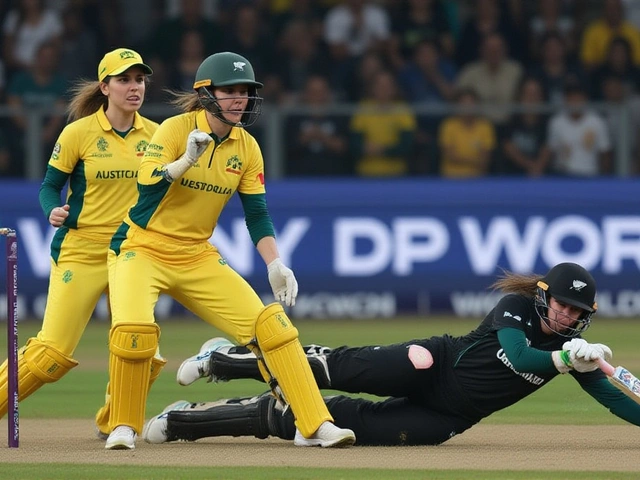Jamaican Guitar Legend Ernest Ranglin to Unveil Legacy Box Set Ahead of 2025 Livestream Celebration

At 93, Ernest Ranglin isn’t slowing down—he’s finally getting the spotlight he’s earned over six decades of shaping the sound of Jamaica. The legendary guitarist, who turned 90 in June 2022, is preparing to release Ernest Ranglin: Legacy, a career-spanning box set set to drop in late 2025, alongside a free global livestream celebration on January 31, 2025, at Sweetwater Music Hall in Mill Valley, California. The next day, February 1, an in-person tribute will feature musicians like Vinyl, Soul Ska, Jon Chi, and Angeline Saris, all paying homage to the man whose guitar work laid the foundation for ska, rocksteady, and reggae.
The Sound That Built a Nation
Ask anyone who knows Jamaican music, and they’ll tell you: if you’ve ever tapped your foot to the crisp, chunky rhythm of a ska tune, you’ve felt Ernest Ranglin’s touch. He wasn’t just playing guitar—he was inventing the language. In the early 1960s, as the first-call session guitarist for Studio One, Ranglin anchored the legendary Skatalites, the house band behind Bob Marley’s earliest recordings. When Clement 'Coxsone' Dodd signed the Wailers in 1963, it was Ranglin who shaped their sound, teaching Marley not just how to play guitar, but how to arrange music. "It was Ernie who helped a young Bob Marley," says DK, a chronicler of Jamaica’s music scene, confirming what decades of recordings already whispered: Ranglin was the silent architect.
He didn’t stop there. Ranglin became the first musician to replace the double bass with an electric bass on Prince Buster’s sessions—a move that redefined Jamaican rhythm sections forever. Bass legends like Aston "Family Man" Barrett and Robbie Shakespeare didn’t just follow his lead—they built their entire styles on the template he created. His signature palm-muted, low-string riffs, played on his beloved archtop Gibson, became the heartbeat of classics by the Ethiopians and countless others.
The Unseen Genius
Here’s the twist: for all that influence, Ranglin’s name rarely appeared on the records. Thousands of tracks bear his playing—hundreds were hits—but you won’t find his name in the liner notes. "His genius was more often than not reflected in the work of others," notes a 2025 feature on oakiedog.substack.com. "With very little footage of him playing live or in the studio, he became the ghost in the groove."
He wasn’t just a sideman. From 1965 to 1972, he served as musical director for Federal Records, run by Ken Khouri, who also produced Ranglin’s own 1965 album Guitar in Ernest. Simultaneously, he worked as an A&R man for Duke Reid’s Treasure Isle label and later for Island Records, where his solo releases Wranglin (1964) and Reflections (1965) marked his return to jazz roots.
His international breakthrough came during a nine-month residency at Ronnie Scott’s Jazz Club in London. Backed by the Ronnie Scott Quartet, Ranglin played alongside jazz greats and earned top honors in Melody Maker’s 1964 Reader’s Jazz Poll—beating out legends. Yet back home, he was still just "the guy who played on the record."
A Legacy Finally Honored
Recognition came late, but it came loud. Ranglin received an honorary doctorate from the University of the West Indies, was inducted into the Jamaican Music Hall of Fame, and was awarded the Order of Jamaica (OJ) and Order of Distinction (OD)—two of the nation’s highest honors. He officially retired in 2016, touring the world with a multinational ensemble of Nigerian, Senegalese, British, and American musicians.
But retirement didn’t mean silence. In 1996, his album Below the Bassline became the first release on Chris Blackwell’s Island Jamaica Jazz label. In 1999, he collaborated with Senegalese icon Baaba Maal on the live album Live at the Royal Festival Hall, creating what one critic called "beautiful intergalactic sounds."
Now, with the Legacy box set, fans will finally hear rarities, unreleased demos, studio outtakes, and live recordings spanning 1959 to 2020. The January 31 livestream will feature archival footage, interviews, and performances by artists he influenced. "This isn’t just a box set," says producer Robot Commander Oz. "It’s the first time the world gets to see the man behind the sound."
Why This Matters Now
Ranglin’s story isn’t just about music—it’s about who gets remembered, and who gets left in the shadows. While Bob Marley’s name is global, Ranglin’s contributions were foundational. He didn’t just play on Marley’s early tracks—he helped him find his voice. He didn’t just adapt the electric bass—he made it the backbone of a genre. And yet, for decades, his name was a footnote.
That’s changing. The 2025 celebration isn’t just a party—it’s a correction. A chance to say: yes, this man shaped the world’s music. And yes, he deserves to be seen.
What’s Next?
The Legacy box set is expected to include a 120-page book with rare photos, handwritten arrangements, and firsthand accounts from collaborators like Angeline Saris and Jon Chi. A companion documentary is also in development, with footage shot in Kingston, London, and New York. Meanwhile, the January 31, 2025 livestream will be archived permanently on the Sweetwater Music Hall website, ensuring global access.
For younger musicians in Jamaica, Ranglin’s story is a lesson: greatness doesn’t always wear a spotlight. Sometimes, it’s the quiet hand that makes the rhythm move.
Frequently Asked Questions
How did Ernest Ranglin influence Bob Marley’s early music?
As Studio One’s house guitarist and arranger in the early 1960s, Ranglin played on the Wailers’ debut singles and taught Bob Marley not just guitar technique, but arrangement and structure. His palm-muted, syncopated rhythms became the template for early reggae guitar, and Marley himself credited Ranglin with helping him understand how to build songs—not just play them.
Why isn’t Ernest Ranglin as famous as other Jamaican musicians?
Ranglin spent most of his career as a session musician and arranger, meaning his name rarely appeared on record labels. While he played on hundreds of hits, he rarely fronted them. Combined with a lack of live performance footage and media coverage, his contributions were absorbed into the music itself—brilliant, but invisible to casual listeners.
What makes the 'Legacy' box set unique?
It’s the first comprehensive collection of Ranglin’s work, including unreleased Studio One demos, rare solo albums like Reflections, live recordings from Ronnie Scott’s, and interviews with collaborators like Ken Khouri and Angeline Saris. It also features restored audio from 1960s tapes, many of which had never been digitized before.
Did Ranglin really play the first electric bass in Jamaica?
Yes. On Prince Buster’s 1963 session for "Al Capone," Ranglin swapped the double bass for an electric bass guitar, creating a tighter, punchier sound that became the standard. This innovation directly influenced Aston Barrett and Robbie Shakespeare, who later defined the basslines of reggae’s golden era.
How can people access the January 31, 2025 livestream?
The livestream, hosted by Sweetwater Music Hall in Mill Valley, California, will be free and accessible via the venue’s website and YouTube channel. No registration is required, and the recording will remain available afterward for global audiences to revisit.
What honors has Ernest Ranglin received?
Ranglin holds an honorary doctorate from the University of the West Indies, was inducted into the Jamaican Music Hall of Fame, and received both the Order of Jamaica (OJ) and Order of Distinction (OD)—the nation’s highest civilian honors—for his contributions to music and culture.




